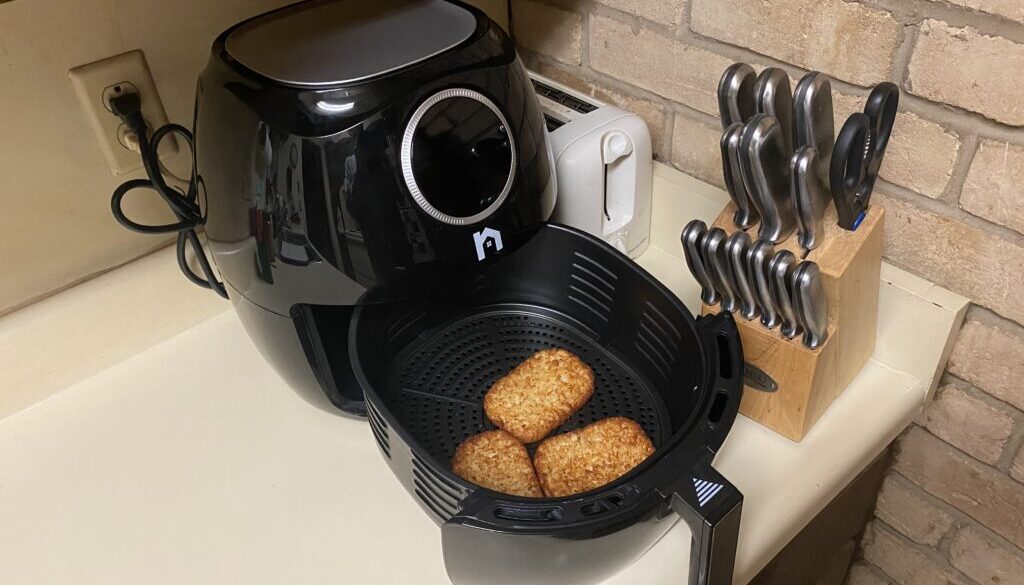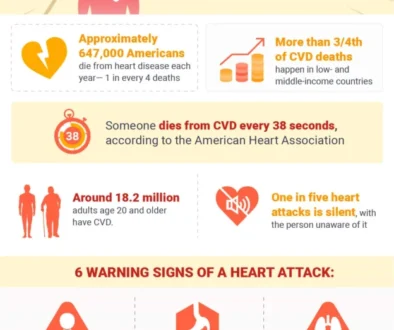Is Air Frying Healthy? Here’s What a Dietitian Says
*Read the original article here: https://www.eatingwell.com/article/7898639/is-air-frying-healthy-heres-what-a-dietitian-says/
By Vanessa Rissetto M.S., RD, CDN
Air fryers have actually been on the market for over 10 years, yet they seem to be more popular than ever right now. But what is it about the air fryer in particular that makes it a top choice? Is air frying even that healthy? Here’s what a registered dietitian says.
What Exactly Is Air Frying?
For starters, the air fryer allows us to make crispy foods that taste similar to the deep-fried version but without all of the extra oil. Definitely sounds like a win, but is it really healthy?
An air fryer is basically a hybrid between a deep fryer and a convection oven. The air fryer contains a fry basket that allows food to be suspended and accessible to heat from all sides—great for making things nice and crispy.
However, instead of being placed in hot oil, the food is exposed to very hot, circulating air—similar to a convection oven.
So, now that we know how the air fryer works, how does it compare to traditional cooking methods?
How Cooking Affects Food
Because cooking in the oven and air frying utilize similar heating techniques (i.e., hot air), food will generally end up with the same nutrient profile regardless of the appliance you choose.
However, any time a food is cooked, its composition changes, and inflammatory compounds can form. This is particularly true for polyunsaturated fatty acids, including the heart-healthy omega-3 fats EPA and DHA found in fish. In a 2018 Science in Asia study, fried fish fillets retained the least amount of EPA and DHA. Another 2018 Antioxidants (Basel) study revealed that pan-frying salmon produced the most inflammatory compounds from changes in polyunsaturated fats.
While there is a chance that the high heat levels in the air fryer can accelerate these processes, more research is needed to determine this effect.
Air Frying vs. Deep Frying
When we look at the difference between deep frying and air frying, there’s a clear winner (hint: it’s air frying!). The main reason air frying is preferred to deep frying is related to the amount of oil used. The deep fryer requires a few liters of oil, and most air fryers require little or no added fat!
Eating too many fried foods is an easy way to consume excess calories. That said, air frying significantly decreases the amount of oil absorbed into foods compared with deep frying. This is a benefit of using the air fryer because less oil generally leads to fewer calories consumed, which can reduce the risk of weight gain, obesity and more.
:max_bytes(150000):strip_icc()/air-fryer-chicken-nuggets-fed37b35d0c343689dcc8e104dc717f4.jpg)
Further, when cooking oil is heated, it can lead to increased concentrations of inflammatory compounds, which can actually be absorbed into the food. In this case, less oil retention equals fewer inflammatory compounds in the food we are eating. This may translate to a reduced risk for the development of chronic diseases, including cardiovascular disease. Depending on the type of oil being used, less oil could also mean a decreased intake of saturated fat, which would also contribute to decreased risk for the development of cardiovascular disease.
When food is also exposed to high temperatures and for a prolonged period, whether it is cooked using the air frying or deep frying method, it may have more advanced glycation end products (aka AGEs) than in its raw state. While it’s still unclear whether air frying results in less AGE production compared to deep frying, consuming too many AGEs over time may increase the risks of developing chronic diseases such as diabetes, cancer and Alzheimer’s disease, according to a 2019 review in American Journal of Lifestyle Medicine.
Still, the air fryer may be particularly helpful when cooking starchy foods like potatoes. Foods generally take a longer time to be air-fried than deep-fried, and the starch tends to break down less when air-fried. What does this mean? According to 2022 Frontiers in Nutrition research, air-frying potatoes increased the levels of slowly digestible starch, which could have a slightly lower impact on blood sugar (though note that you still need to be mindful of carbohydrates in your air-fried foods).
Is Air Frying Healthy?
So, let’s take a step back and answer the final question: Is the air fryer “healthy?” The answer is that it depends on what you mean by healthy and what other cooking methods you are comparing it to.
Generally, when compared to deep frying, the air fryer is a healthier option because it contributes fewer calories to the finished product and can result in less inflammation, potentially decreasing the risk for chronic disease down the line.
When comparing the air fryer to the oven, the answer is less clear. The two appliances are similar in functionality, except the former allows you to cook food in a shorter period of time.
Instead, the real driver of “what is healthy” is the kind of foods you eat and put in the air fryer. Nutrient-dense foods like fruits, veggies, whole grains, fatty fish and lean meats are generally just as nutritious in the air fryer as in the oven.
However, the air fryer isn’t a “free pass” to eat unlimited amounts of higher-calorie foods just because it’s healthier than deep frying. It’s also important to remember that the main benefit of air frying over deep frying is the amount of oil, so if you begin adding significant amounts of oil to the foods you air-fry, the benefits may not be quite as drastic.
The Bottom Line
If you tend to eat a lot of fried food, an air fryer like the Ninja Foodi is definitely a good option for you. Still, the air fryer isn’t a magic machine that makes any food “healthy.” If you typically use the oven to cook food, the air fryer can be a great tool to add more variety to your cooking and get meals on the table faster.



